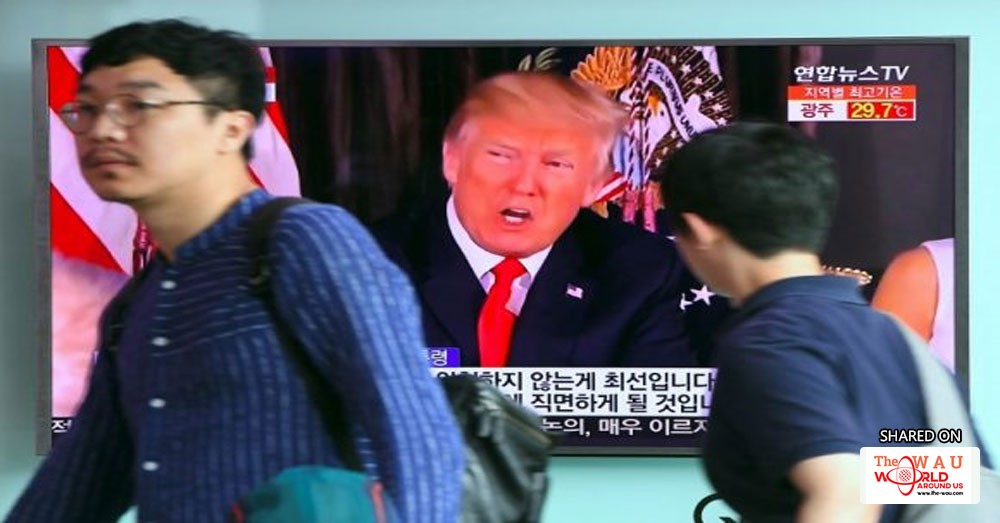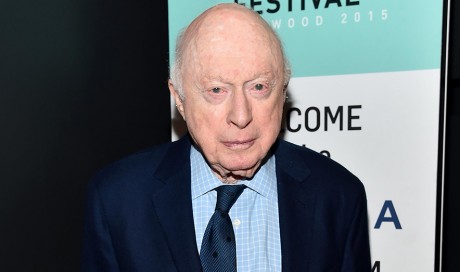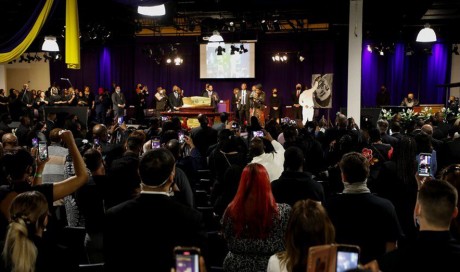US President Donald Trump has surprised some observers by embracing the current inter-Korean talks on North Korea’s participation in the 2018 Pyeongchang Winter Olympics despite fears that such participation is ultimately aimed at weakening the US-South Korean alliance and undermining international sanctions against Pyongyang.
Senior US officials have welcomed the inter-Korean dialogue as a break from the escalating war of words between Washington and Pyongyang that has raised tensions in recent months and prompted talk of the US launching a preventive war to destroy North Korea’s nuclear facilities.
US Defense Secretary Jim Mattis, Gen. Joseph Dunford, the chairman of the US Joint Chiefs of Staff, and US Secretary of State Rex Tillerson have all argued strongly for a diplomatic solution to the North Korean nuclear crisis. All of them have briefed Trump on the catastrophic consequences of a war breaking out on the Korean peninsula, countering the more hawkish view of H.R. McMaster, the president’s national security advisor, whose staff has been the main source of leaks about the US staging a “bloody nose” attack on North Korea.
Those briefings have likely persuaded Trump to scale back his harsh rhetoric against North Korean leader Kim Jung-un and agree to delay to annual joint US-South Korean military exercises until the beginning of April, after the Winter Olympics are over. Trump said that he is ready to negotiate with Kim “under the right conditions.”
Trump also views the resumption of inter-Korean talks as a vindication of his earlier tough stance on North Korea. South Korean President Moon Jae-in has diplomatically given “huge credit” to Trump for the Kim’s offer to talk with Seoul, enforcing the view that Trump’s strategic ambiguity when it comes to North Korea is paying dividends.
Trump has dismissed criticism that he was handing Kim a propaganda victory when he endorsed the inter-Korean talks and delayed the military exercises. “I don’t think anybody thinks I’m bending. I think that people think that, if anything, I’m being too tough,” Trump told the Wall Street Journal last week, adding “I think it would be totally inappropriate” to hold the exercises during the Olympics.
Asked by the WSJ if he thought North Korea was trying to drive a wedge between Washington and Seoul, Trump replied: “I will let you know. But if I were them I would try. But the difference is I’m president; other people aren’t. And I know more about wedges than any human being that’s ever lived.”
In discussing his earlier combative stance against Kim, Trump explained: “You’ll see that a lot with me… and then all of a sudden I’m somebody’s my best friend… I’m a very flexible person.”
Analysts see little danger for now of North Korea’s participation in the Winter Olympics weakening the US-South Korean alliance. “I think we would have had the same thing happening if Park Geun-hye was still in power and Hillary Clinton was president,” says a consultant who advises the Pentagon on Korean affairs. “They would have also taken advantage of this opportunity to de-escalate tensions resulting from the North’s accelerated nuclear program.”
Both Washington and Seoul have emphasized they are closely cooperating on North Korea. Moon stressed: “South Korea is not intending to ease sanctions on North Korea unilaterally and separately from the international sanctions.”
“While desiring to make a breakthrough with Pyongyang that will sustainably lower inter-Korean tension, Moon is constrained by the need for solid coordination with the US,” is the view of Scott Snyder, senior fellow in Korean studies at the Council on Foreign Relations in Washington, DC.

People walk past a screen showing President Trump in Seoul days after he issued an apocalyptic warning to North Korea that it would face “fire and fury” if threats continued. Photo: AFP / Jung Yeon-je
If anything, there are worries that Trump might drive a wedge in US South Korean relations if he decides to push for a hard bargain on the renegotiation of the KORUS free trade agreement, or even scraps it. “The economy is important to South Koreans and we would likely see a backlash” if the KORUS agreement is abandoned, says Soojin Park, a public policy fellow at the Woodrow Wilson International Center for Scholars in Washington.
Another potential cause for dispute between the US and South Korea is upcoming talks on a new defense burden-sharing agreement, although Seoul is likely to mollify Trump by ordering more weapon systems from the US.
The current inter-Korean détente is likely to go only so far. With North Korea already complaining about media coverage in South Korea, there is the possibility that Pyongyang will overplay its hand and cancel its agreement to participate in the Olympics at the last moment, or recall its athletes after they arrive because of perceived slights.
In the end, Trump has probably made a smart move to support inter-Korean dialogue because it shows that the US is a friend, not an enemy, of the Korean people.
This counters North Korea’s propaganda that the nuclear issue can only be solved between the two Koreas. If the current talks collapse due to Pyongyang’s obstinance, it would reveal North Korea as the guilty party, not the US. And if they continue beyond the Olympics, that could open the way for direct talks between Pyongyang and Washington that might include a freeze on joint military exercises in return for a halt to North Korea’s nuclear and missile tests, which is seen as the first step to the North’s denuclearization.
Share This Post












